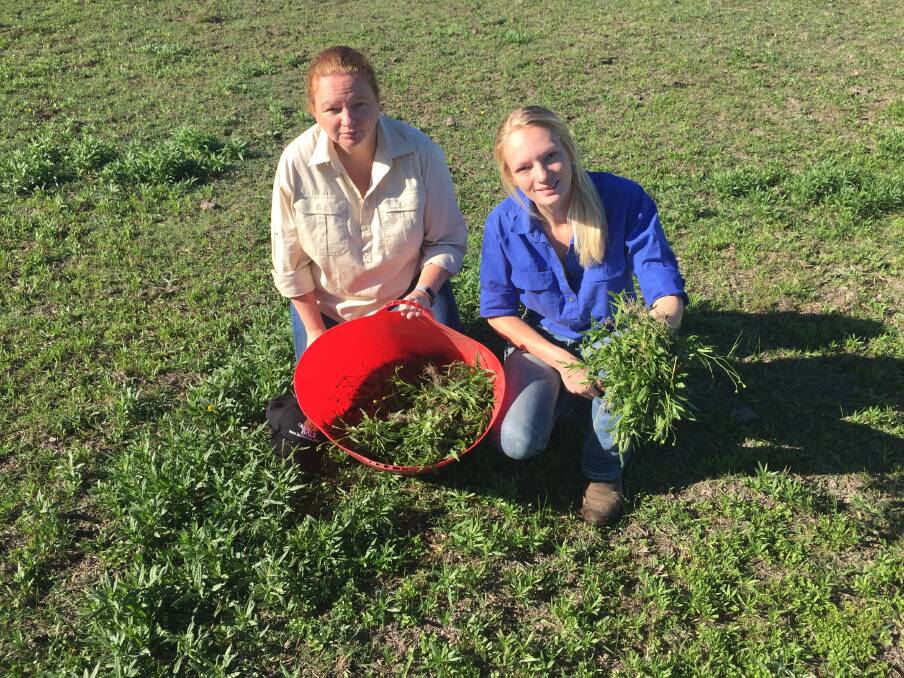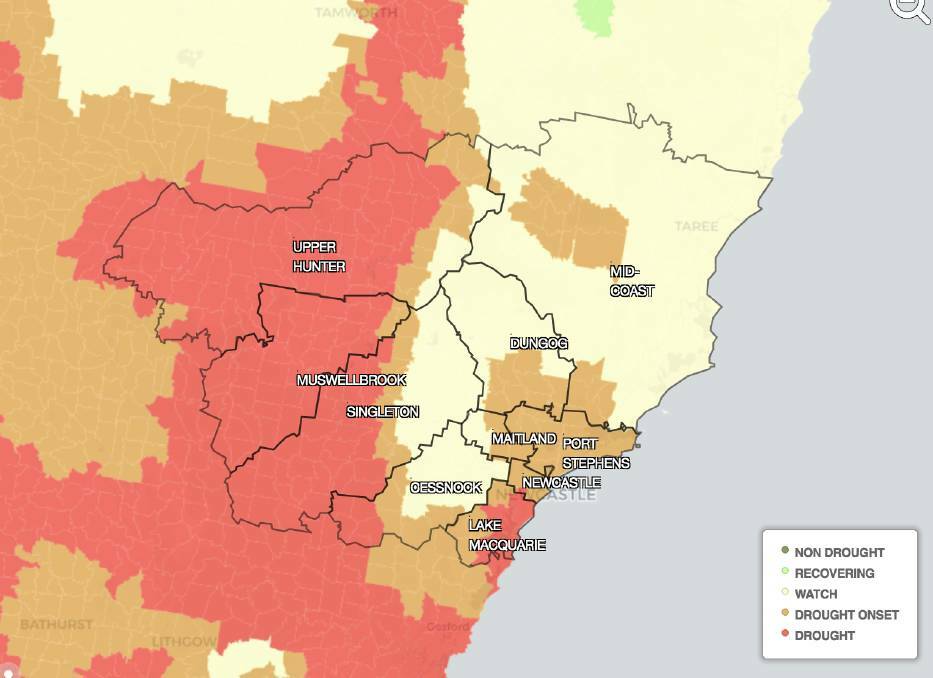
The fight to survive the drought is so tough that the Gough family has been forced to sell some of their furniture, their pet birds, and most of their horses to put food on the table.
Subscribe now for unlimited access.
or signup to continue reading
Their laundry is filled with wheat seedlings in kitty litter trays while their paddocks are riddled with weeds that will kill their cattle if they eat enough of them.
They hand feed seven seedling trays to their last six cattle every day and will have to keep up the routine at least until the end of winter.
There’s no feed in the paddocks, no moisture in the top soil to grow crops, and they have to spend a lot of money to get rid of the weeds.
On top of that, the house roof leaks and they cannot afford to repair it until they save up to buy some of the materials.
Despite all of this hardship Clarence Town couple Tanya and Steven Gough continue to push forward – adamant that they wouldn’t ask for help because they think other people are worse off.
If we have to sell stuff to survive we have to, we have no choice – we have to make do,
- Mrs Gough
“As much as I love them and they are our pets we have to pay the mortgage, the electricity bill, the water bill, and put food on the table.”
Mr Gough has a full-time job off-farm – earning an average wage – but it hasn’t been enough to withstand the severe drought.
Their situation became critical last month when Mrs Gough was standing in front of an empty pantry and knew she had to reach out for help – even if she was too proud.
Now she wants to encourage other struggling Hunter farmers to speak up instead of suffering in silence.
Asking for help doesn’t make you any less of a person, or a parent, it just means you can recognise when you need help,
- she said
Mrs Gough contacted Rural Aid, after reading about the Buy A Bale Hunter campaign, and was amazed when hay and a hamper arrived.
Read more: ‘double trouble’ on the farm
“When you live in small rural communities it’s harder to ask because you know it’s going to get out, and you don’t want your children to be judged differently because of it. I’ve learnt that it’s okay to ask for help.”

Even though the family desperately needed all of the hay they gave one of the bales to the donkey sanctuary at Glen William to help feed their starving animals.
Mrs Gough is the secretary of the Clarence Town RFS and a volunteer paramedic with Community First Responders. She said a lot of people assumed the tough times were over thanks to recent rain.
If you don’t live on the land you don’t understand – people drive through and there’s a beautiful green tinge and they think ‘what’s the problem?’ but if you go in the paddock it’s just all weeds,
- she said
The cost of hay has been a constant barrier, with prices more than doubling as the supply shrank. The last round bale they bought cost $240 and they had to travel to Scone to get it.
“You can go and buy a round bale of oaten chaff in Victoria for $30 or $40, and up here it used to be $60 to $80 but now it’s well over $200 – and that’s if you can get it,” Mrs Gough said.

The couple’s daughter Hayley, who will graduate with a Diploma in Agriculture from Tocal College today – and receive a special award for her studies – was incredibly moved by the community’s fundraising efforts.
She wanted to give back – so more farmers could be helped.
She jumped at the chance to volunteer with Rural Aid and pass the Buy A Bale Hunter buckets around at the Crossroads in the Vines concert.
Her friend Erin, who has also studied agriculture at Tocal College helped as well.
When some concert-goers questioned how much she was getting paid she told them how the campaign had saved her family from having to sell the rest of their cattle.


